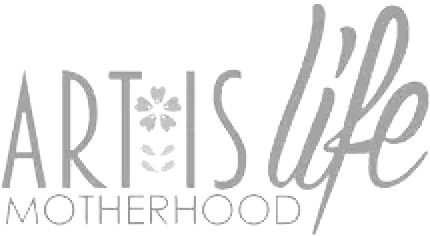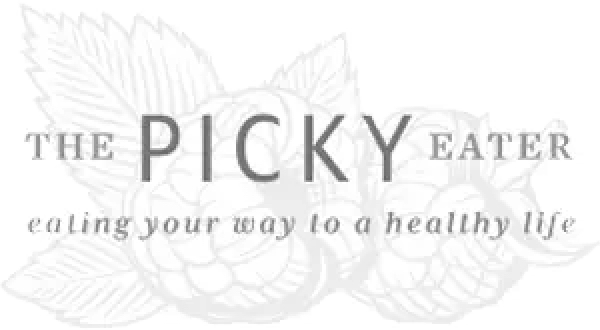The formulas your baby deserves.
Free and fast shipping on all orders.
SHOP BABY FORMULAS What makes a good formula?FAST & FREE Shipping on All Orders
A Formula For Every Baby’s Need
As parents ourselves, we feel you. That's why we carry organic formulas designed specifically for babies with constipation, gassiness or sensitivity.

Formulas for Newborns
Do you want the best start possible for your little one? All of these formulas are designed to be gentle on the tummy, for newborn babies.
See newborn formulas →Hypoallergenic Formulas
Is your little one sensitive to dairy? These gentle formulas are specially made for babies with cow’s milk protein intolerance or suspected allergies.
See hypoallergenic formulas →

Formulas with Probiotics
Want more of a good thing? Probiotics promote overall health and well-being, improve digestion and boost immune function. These formulas contain a probiotic strain that’s also found in breast milk!
See formulas with probiotics →100% Satisfaction Guarantee
If this formula isn’t right for your baby, we will work with you to help find the right option for your little one, and give you a store credit to try one box for free.





The Little Bundle Supermom Scholarship
The Little Bundle Supermom Scholarship is a student scholarship designed to support single mothers and those who support them and benefit from their love.

Malerie Quintero: February Scholarship Winner
Being a single mother is often about sacrifice for the best care and experiences for your child. Find out how Little Bundle is supporting single moms like Malerie achieve her dreams.
Read Malerie’s story →Little Bundle Insights
You've probably conducted extensive research to find and choose the best formula for your baby. We’re here to help.
HiPP vs. Holle Formula: The Ultimate Comparison Guide
As the go-to provider of HiPP and Holle European baby formulas for thousands of families, we understand that you want the absolute best formula for your...
Read more →
What makes a good baby formula?
Many baby formulas appear similar at first, but their ingredients lists say otherwise.
Use our analysis below to help you decide what you do and don't want in your little one's formula.
1. Selecting The Right Carbohydrate
Lactose
Lactose is the carbohydrate found in breast milk, which makes Lactose-based formulas much closer to breast milk than alternatives. All infants produce the lactase enzyme, allowing them to easily digest and absorb Lactose.
Lactose also has a far lower glycemic index than processed refined sugars, aids in the absorption of calcium, helps the growth of beneficial gut bacteria, and more.
In short, choosing a Lactose-based formula is probably the most important step in finding the best formula out there. As you read the ingredients, keep in mind that lactose is the main ingredient in cow's milk, and may appear as "organic cow's milk" or "organic skimmed milk" in ingredient lists. Lactose-based formulas are typically manufactured in Europe.
Processed Refined Sugars
Formulas manufactured in the US are typically based on sugar, corn syrup, syrup solids, or brown rice, all of which are high in sucrose and have high glycemic index.
As you can probably guess, these are extremely unhealthy. Formulas with added sucrose are actually banned in Europe due to childhood obesity concerns, which tells you all you need to know about formulas with sugar as the carb base.
With nearly 1 in 5 children in the US having obesity, it's never been more important to carefully read the ingredients list of the formula you choose for your little one to make sure it doesn't contain added sugar. As you may have guessed, you won't find these types of formulas on Little Bundle!
2. Prebiotics and Probiotics
Prebiotics
Prebiotics are like food for beneficial gut bacteria (probiotics), and are naturally found in breast milk. They won't get digested by your baby, but they will aid the growth of probiotics, helping shift your baby's microbiome to be more similar to that of a breastfed baby.
That's a great thing, which is why you'll find prebiotics in many of the products carried on Little Bundle. When selecting a formula, check the ingredients list for common prebiotics like Galactooligosaccharides (GOS) or Fructooligosaccharides (FOS).
Probiotics
Probiotics are the beneficial gut bacteria that are part of a healthy baby's microbiome!
These are critical, since around 30% of a breastfed baby's microbiome comes from natural probiotics found in breastmilk. Probiotics may help improve immune response, reduce colic, prevent eczema, and more.
They are a big plus in baby formula, and can be found in Little Bundle's HiPP Dutch products. When selecting a formula, check the ingredients list for Lactobacillus or Bifidobacterium.
3. DHA and ARA
DHA
DHA is a long chain omega 3 fatty acid that is important in early eye and brain development. Based on the findings from the latest scientific and nutritional research, it is now required in all European infant formulas.
DHA, a vital nutrient, is naturally found in breastmilk. Formulas fortified with DHA are beneficial, as generally babies may need more DHA than they can generate on their own.
ARA
ARA is another fatty acid that is important in regulating inflammation and in generating different body signals.
Like DHA, it's also found naturally in breastmilk and is beneficial in formula. You'll find both DHA and ARA in the products found on Little Bundle.
4. Preservatives
Many US-made formulas contain synthetic preservatives like ascorbic palmitate and beta carotene. This practice is disapproved by the National Organic Standards Board, and you won't find these preservatives in any European formulas. These synthetic preservatives can be toxic, and are not something you want in your baby's formula.
5. Nutrients
Synthetic nutrients include lutein, lycopene, taurine, L-carnitine, and L-methionine. Many of these substances are toxic themselves or processed with toxic solvents. They are banned in Europe, but are still commonly found in many formulas made in the US.
6. Palm vs. Soy
Palm Oil
Palm oil is used in most formulas in both Europe and the US. It may cause digestive issues and gassiness in babies, but is still typically better than soy oil, which is the main alternative.
Soy Oil
Soy oil is the main alternative to palm oil. While it isn't typically associated with digestive issues, it has been found to be linked to severe menstrual cramps later in life. Given this, palm oil is generally considered the better alternative between the two.



